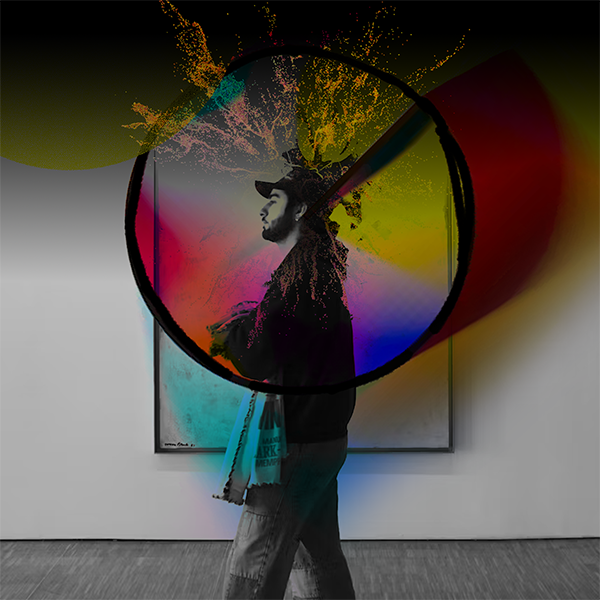Crucial Conversations: Kingdom Ethics for our Post-Election Reality, Part One
(Editor’s Note: Missio Alliance recently hosted two Facebook Live discussions with leading pastors and thinkers as they reflected on and reacted to the recent national election and shared responses for moving forward. The first of these discussions featured:
- Justin Fung (pastor of leadership and spiritual formation at Christ City Church in Washington, DC)
- Stephanie Williams O’Brien (lead pastor at Mill City Church in Minneapolis, MN)
- David Swanson (founding pastor of New Community Covenant in Chicago, IL)
and was moderated by Missio Alliance national director Lisa Rodriguez-Watson. What follows is an edited excerpt of their conversation; the full transcript can be found here. Part two of this conversation features David Fitch, Rich Villodas, and Leeann Younger and will release next week.)
Lisa Watson: What’s been most surprising for you about this election cycle and how you feel it has directly impacted the church’s witness? What might this mean for how we as kingdom people continue to live faithfully in a divided world?
Stephanie O’Brien: There is no easy answer to that question. I was hoping to be surprised that the church would look distinct from the way in which the world, the country, and the partisan politics are responding to the issues of the day. And not to say that there have not been any distinctive moments, but it feels more like we’ve had our shining moments, and that’s maybe it. We have largely kept ourselves either sounding just like the rest of the conversation, or actually just joined in and made some of it worse. So I’ve been surprised by the lack of empathy, the lack of compassion, the inability to see that that a vote for what makes sense for you might not be best for your neighbor.
I’ve been surprised by the lack of empathy, the lack of compassion, the inability to see that that a vote for what makes sense for you might not be best for your neighbor. Share on XThis inability to show that we’re thinking that way, the lack of thoughtfulness, has been really tough. And conversely, it’s been great to see those moments come up where we seem to find ourselves, but it does feel really discouraging to see the way in which—at least the way that the church has been represented in the most public stages—the church doesn’t represent the heart of Jesus. And in moments that it does, it feels as though those moments are gone pretty quickly. And so what does it mean for us as kingdom people to live faithfully in a divided world?
I think what’s at stake here is our identity as Jesus followers, that the temptation—and I’m using the word “temptation” intentionally—the temptation to envelop ourselves within a political party rather than distinctly looking at ourselves and our allegiance to the kingdom of God is really tempting. Especially right now, because of some of the very public rhetoric of the president, because of some of these very important policies that people feel passionate about, all of that is taking center stage. And I think the possibility that we might lose ourselves and our identity as distinct Jesus followers is very real. So what we can do to be faithful is passionately seek after what it means to be Jesus’ followers first and foremost, to be allegiant to Jesus. And to recognize that as a person who is allegiant to Jesus, we are people of love.
And to say something such as, “It doesn’t matter who’s president,” as people who are in the majority culture who have much privilege and power, to recognize that that statement is not the same for me as it is for my neighbor of color. That’s not the same statement for me as it is for someone who is trying to figure out what it looks like to have some of their basic needs met. And so regardless of whether or not any leader is going to come in and make any changes that actually will benefit my neighbor, the way in which the public stage is handling all of this is painful for my neighbor. And could I have compassion for that reality, even though we might disagree about some policies? It’s nuanced responses that help us to be faithful to our witness in this time, but it’s getting more and more difficult to really clearly state what it means to be after the heart of Jesus.
Justin Fung: In the US, particularly in white evangelicalism, we’ve had a truncated gospel, an incomplete gospel, that we see conversion and the sinner’s prayer as the end goal, rather than the beginning of a journey of maturing, of growth, of changing, of becoming more like Christ. In America in particular, its sort of Christianity has become so co-opted for control and for power and authority in ways that completely run counter to the character of Christ and who Jesus was. And that’s sad. I don’t know that it’s a surprise; I just think it’s sad.
In America in particular, its sort of Christianity has become so co-opted for control and for power and authority in ways that completely run counter to the character of Christ and who Jesus was. And that's sad. Share on XI was watching a clip from Eddie Glaude from an interview from a year ago. And he was talking about the evils within our system in the US, that they are not unique to us. The sins are not unique to us. But what seems unique and singular to the US experience is our inability to name, to confess our wrongs, to acknowledge our wrongdoings. We are seeing the efforts to begin to name that are slowly coming to the surface. Jemar Tisby’s The Color of Compromise, David’s Rediscipling the White Church, Unsettling Truths from Soong-Chan Rah and Mark Charles, those are efforts to bring the wrongdoings to the surface.
It’s not that we weren’t aware of these sins, but in terms of a mainstreaming awareness of and a confession of it, if we as Christians believe in the devastation of sin, why are we so slow to name it, confess it, and respond to it? That has been something that’s been a surprise to me. And so I think what it looks like to be faithful in a divided world is not just to come back to Jesus, although that’s absolutely where we should start. Yes, let’s come back to the character of Jesus and what it means for us as Christians to be the body of Christ. That’s what we’re called to be and who we’re called to be in every situation that we find ourselves in both individually and communally. But let’s also acknowledge the context that we’re in.
Let’s acknowledge the situation that we find ourselves in as Christians in 21st century America; we don’t live in a vacuum. And so it’s important for us to learn our own history. If we consider ourselves Christians in America, then all of our American church history is ours. And I think of Nehemiah who confessed the sins of Israel, even though he understandably he could have said, “You know, I didn’t participate in that. I’m just here trying to do some good stuff.” But he owned the sins, and he lamented and he grieved them. That’s important, that we don’t just let ourselves off the hook and say, “Well, that’s those Christians, Lord.” We have to say, “We’re coming to you with broken hearts and asking that you would form us more in your likeness.”
David Swanson: I love what Pastor Justin is saying. That’s the basic stuff of the Christian life, right? This is what makes Christians unique. It’s not that we’re perfectly put together or have it all figured out; it’s that we’re confessional. It’s that we’re deeply aware of our own complicity and sinfulness. And to echo a little bit of what Justin’s saying there, that’s the sadness and the heartbreak. I don’t want to say I’m still surprised by it, but I think I still am, that our posture is not confessional, that it is still self-righteous, still defensive. And that there is this desire to be exceptional in some ways rather than seeing ourselves as a people deeply in need of salvation, and applying the grace of Jesus even to these sins having to do with racism, or white supremacy, or a church that is not so much divided as it is segregated.
For me, it’s important to say it that way, because I think oftentimes those of us in the majority culture talk about divisions as though they just happened to us, that we’re on the receiving end of these divisions when in fact we’ve created them. We’ve intentionally lived into choices and decisions that have been exclusionary and have consolidated cultural power for our own good and for somebody else’s marginalization. The sadness is that none of this is outside of the basic expectations of the Christian life and what it means to be the people of God together. It’s just that time and time again, we fail to apply them to these areas having to do with politics or race. We act as though somehow the gifts that God has given us are not good enough. And so we succumb to the prevailing assumptions of our culture.
We've intentionally lived into choices and decisions that have been exclusionary and have consolidated cultural power for our own good and for somebody else's marginalization. Share on XLisa Watson: Thank you for these good words. I want to close us with a reading from James 3:13-18:
Who is wise and understanding among you? Let them show it by their good life, by deeds done in the humility that comes from wisdom. But if you harbor bitter envy and selfish ambition in your hearts, do not boast about it or deny the truth. Such “wisdom” does not come down from heaven but is earthly, unspiritual, demonic. For where you have envy and selfish ambition, there you find disorder and every evil practice. But the wisdom that comes from heaven is first of all pure; then peace-loving, considerate, submissive, full of mercy and good fruit, impartial and sincere. Peacemakers who sow in peace reap a harvest of righteousness.
The church in this moment, we have a lot of work to do. May that be true of us.




